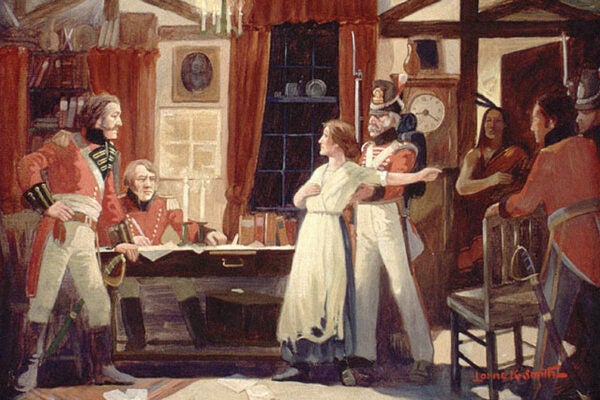In the wake of the November 27th shootings at Planned Parenthood, media interest has centered around what the New York Times calls gunman Robert Dear’s “idiosyncratic” religious beliefs. In a 1993 affidavit, Dear’s ex-wife Barbara Micheau described him as someone who “claims to be a Christian and is extremely evangelistic, but does not follow the Bible in his actions…He says that as long as he believes, he will be saved.”
Dear’s vision of grace—salvation through faith alone, independent of moral or immoral action—may well seem distasteful to many Times readers. But is it “idiosyncratic?” Hardly. In fact, the notion that salvation can—and must—be obtained purely by the grace of God and faith in God’s mercy, rather than by anything an individual does (or does not) do, is among the issues at the heart of the division between the Protestant and Catholic Christian traditions. Dear’s actions may seem reprehensible to Christians and non-Christians alike, but his understanding of salvation is very much in keeping with the American evangelical tradition.
The importance of Christian grace—as evidenced by belief in Christ—has historically received more emphasis in America than Europe. From the early nineteenth century onwards, traveling preachers and evangelical theologians like John Wesley and Nathanial Taylor emphasized just how little a role individual action played in whether or not a man was saved. The major debate in early American Protestantism, as historian Timothy Smith writes, was whether or not an individual could choose to believe in Christ, or whether an individual’s belief was the result of God’s controlling action: bringing a would-be believer to the point of faith.
Granted, the Christian—once saved—was expected to do good works, but this was seen as the result rather than the cause of the sanctification that the act of grace accorded. Debates raged between such figures as Charles Grandison Finney—one of the “New England theologians” who believed that man had the freedom and capacity to respond to moral laws and demanded rigorous moral adherence from Christians—and Arminian Methodists like John Wesley, who held that man’s nature was so depraved that, while he might be saved by Christ, it was nevertheless impossible to demand perfection from him.
Is there something quintessentially American about this view of sin and grace? Timothy Smith certainly thinks so. It contributed to a wider sense among Christian theologians that a focus on grace—rather than acts—was essential for Christianity’s survival within this new America. As he writes:
“Like the founding fathers of the nation, [early American theologians] were keenly aware of the threat that in a free society the masses of ordinary persons, including the great company of church people, would make their political and economic and social choices in response to greed or the love of power, pleasure, and public esteem. … Grace alone, they believed, could purify the inner springs of character and so make possible the creation of a righteous society; and that grace came in the sanctifying fullness of the Holy Spirit.”
While Dear’s actions may be horrific and aberrant, to dismiss his theology as purely “idiosyncratic” is to overlook a vast body of grace-centered religious language in the American tradition: a tradition that has come to shape the contours of American evangelicalism today.







